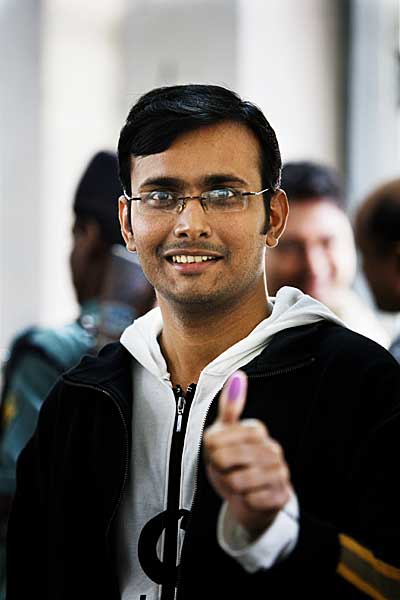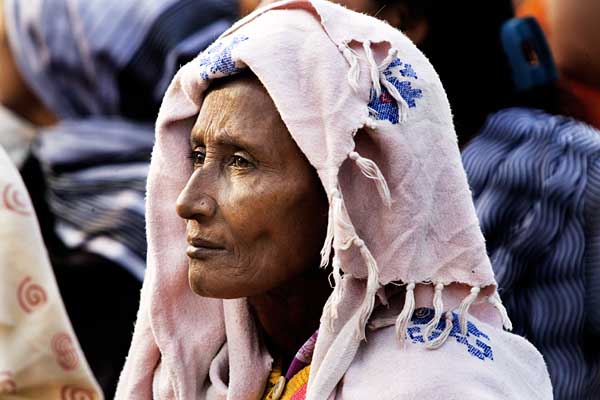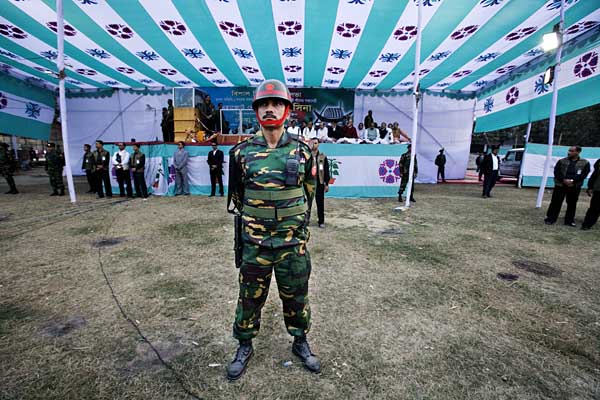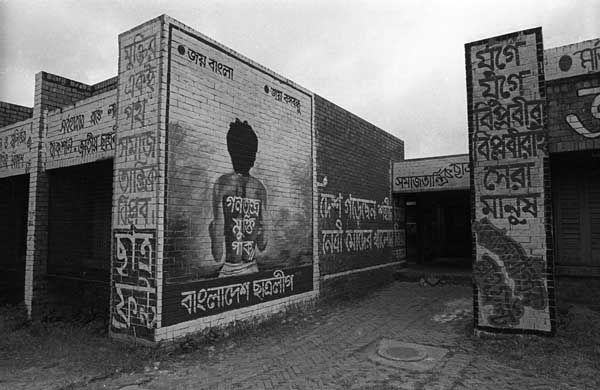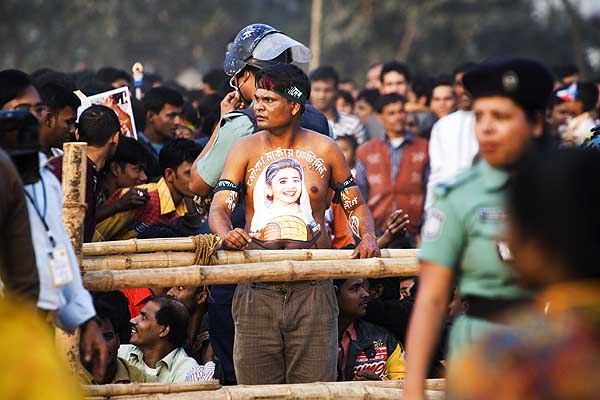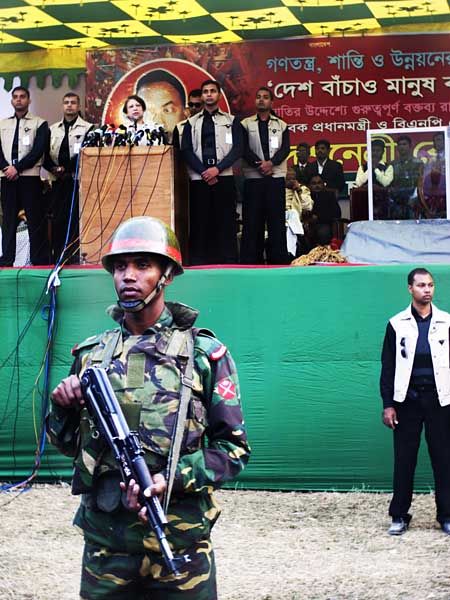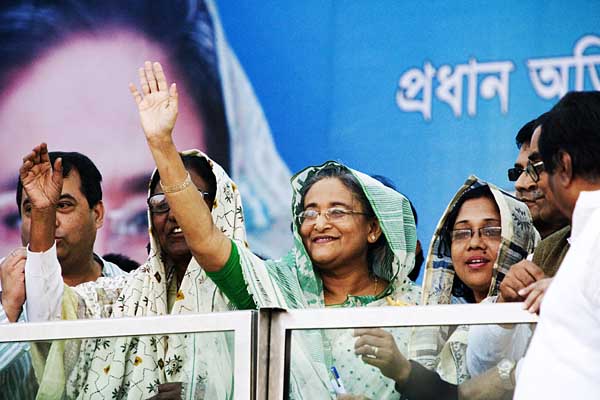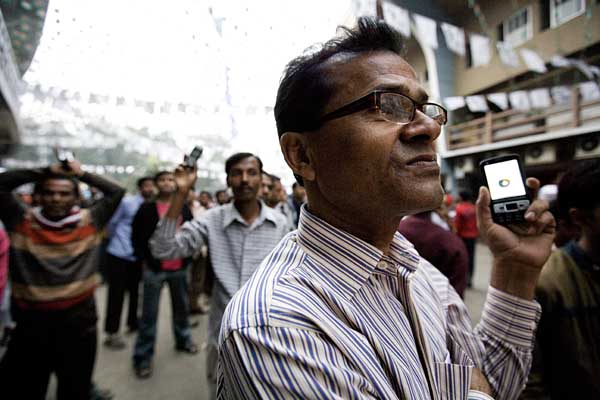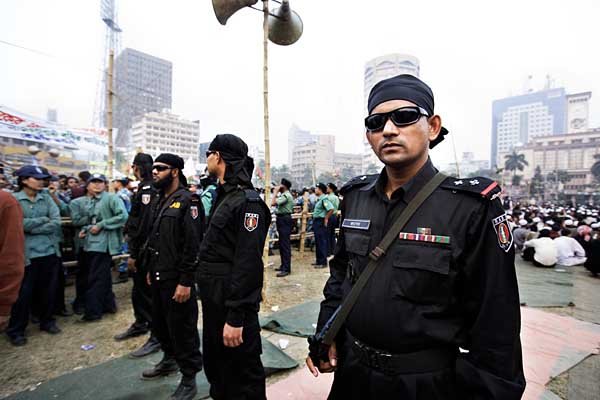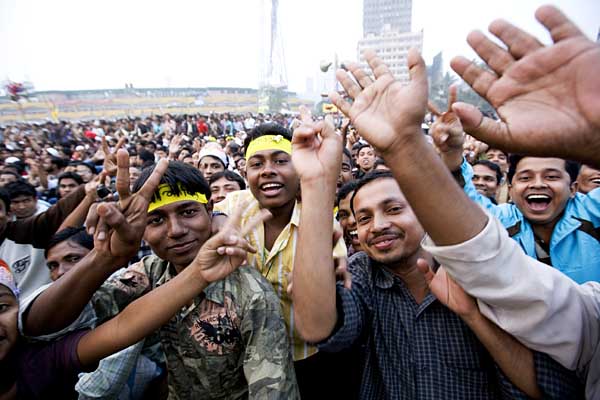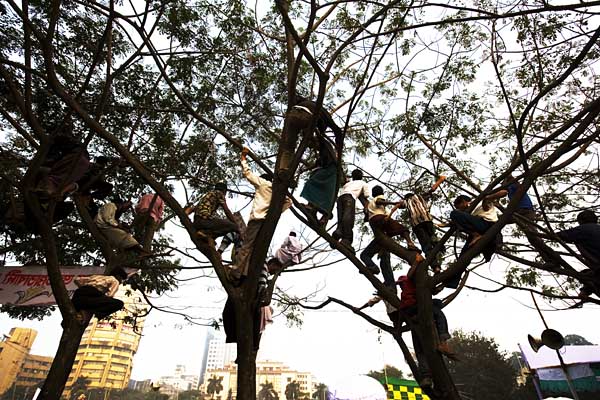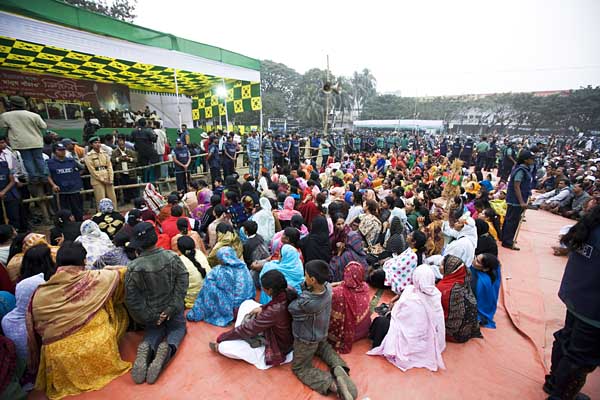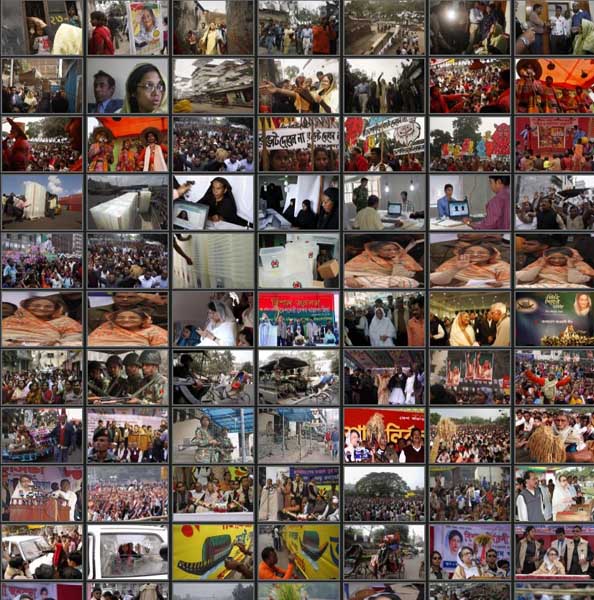By Rahnuma Ahmed
Apnader kacche desh boro, na Chhatra League boro? If anyone had asked Awami League leaders this question right after the national elections in December 2008, they would have? without a shred of doubt?chorused, desh. Desh.
In all likelihood, they would have added, with utter indignation, How on earth can you even think of asking such a question? It is true undoubtedly for ahem those parties, those utterly corrupt ones which had led the previous government, i.e., the BNP-Jamaat government, you know, the ones that brought the country to ruin. Those whom the people resoundingly defeated in the elections… Why yes, their student wings were corrupt. Their leaders and followers were downright thugs, from top to bottom. They have nearly-wrecked the glorious tradition of our public universities. They worked closely with criminal syndicates, under the patronage of the infamous Hawa Bhaban. It is they, these evil forces, who are self-serving, they don’t love the nation. Not one bit. And well, there’s no point in asking about the Jamaat separately, what else can you expect of those who were opposed to the birth of Bangladesh? Their student wing, those Islami Chhatra Shibir guys, the rog kata bahini, going around cutting tendons. Absolutely barbaric. But again, what else can one expect of rajakars and al-Badrs… the previous political party government, the BNP-Jamaat government, it is they who sacrificed the nation on the altar of progress, development and democracy.
Whereas we, we are the party that won independence in 1971. Our student organisation, the Bangladesh Chhatra League was established before the Bangladesh Awami League itself, so, no, there can be no doubt… why, the BCL is part and parcel of the nation. Of its history. If you ignore the BCL, you ignore the nation’s historic struggles for democracy, you ignore the liberation war itself. The very birth of the nation. Both the AL and the BCL, we are devoted to the nation. We are indistinguishable from the nation. [We are the nation].
But soon enough, this glorious Awami League narrative began to suffer from hiccups. What BCL unleashed was so severe that Sheikh Hasina was obliged to step aside as its organisational leader last April. ?After the death of two students. Many more injured. Kicking out opponents to occupy and establish control over student halls of residence. Brandishing arms and firearms to establish supremacy. Turf wars between BCL factions over leadership. Preventing contractors from submitting bid documents for purchasing equipment, for doing construction work. Within campus, outside campus. Extortion. Grabbing haat-ghat-math-pukur-nodi-nala… as the list of places being occupied kept getting longer, the prime minister expressed her disapproval. She stepped aside. She even refused to grant top BCL leaders who had rushed over, presumably to squirm apologetically until they regained her favour, an audience. At least that’s what the newspapers reported.
Was it a good idea? Did her strong disapproval instil the fear of God in BCL hearts? Did it prevent them from doing whatever they were doing? Make them mend their ways? Come to their senses?
Whatever the intent of the prime ministerial gossha, it has largely proven to be ineffective. This has raised a pertinent question in public minds: if the most high-ranking national leader cannot gauge the effect of her disapproval, why express it? Why bother? Why not do something else, something that will be effective? Some go a step further. The disapproval, they think, was for public consumption only. Whatever be their faults and blemishes, the Awami League and the PM need the Chhatra League.
But BCL members have been the targets of violence, too. Faruque Hossain, a Rajshahi university student, was killed and dumped in a manhole. According to newspaper reports, by Islami Chhatra Shibir activists. Incidents of sporadic violence have occurred between BCL and ICS students on other campuses as well. These have spread elsewhere. Such as the Pabna Press Club incident. Two mess quarters where ICS students lived had been set on fire, allegedly by BCL cadres. As a mark of protest, ICS had called a press conference at the local press club. Local-level administration and police hurriedly advised the press club to cancel the event. ICS agreed to the cancellation. But outraged BCL activists insisted on turning up. On ransacking the rooms of the press club. On assaulting journalists.
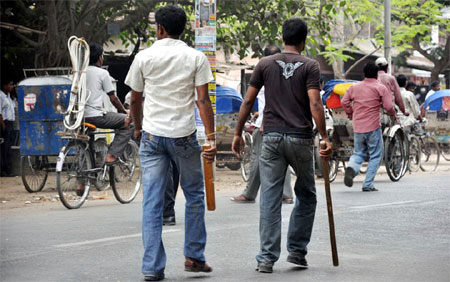
Of course, it is no use blaming the BCL alone for what student fronts, particularly those belonging to ruling political parties, do. It is systemic, practised by all student fronts except those largely belonging to the left tradition. Here is a list of these `excesses,’ diligently compiled and published in a recent Shaptahik-2000 feature. Its writer has added, the list is far from complete (January 29, 2010):
- Picking a fight for no reason but to display superior physical/armed prowess
- Asserting control by whatever means, including killing one’s opponent
- Taking protection money from contractors
- Forcibly evicting tender competitors (tenderbaji)
- Illegal VOIP connection
- Forcibly stripping and photographing a girlfriend
- Drug dealing (phensedyl, yaba)
- Setting up adulterated pharmaceutical company
- Manufacturing forged documents (licences, passports)
- Using the names of leaders, even dead ones, for extortion
- Holding fierarms high, shooting blank rounds during processions and rallies
- Kidnapping neighbour’s daughter
- Breaking out convicts from police custody
- Extorting money from seller of land
- Extorting money from buyer of land
- Taking protection money from contractors
- Beating up public works and water development engineer
- Assaulting a UNO, threatening him with death
- Grabbing land allocated for landless
- Evicting a martyred freedom-fighter’s wife from her house
- Cutting off a ear for insufficient applause to leader?s speech
- Blockading roads for extortion
- Raping and extorting money from sex-worker
- Illegally renting out government billboard space
- Grabbing river banks
- Commandeering government land for political party
- Leaning on police to file cases
- Leaning on police to withdraw cases
- Threatening teacher with gun to pass exams
- Counterfeiting money
- Severing tendons of arms and legs, plucking out eyeballs
- Beating up a good student for attending exams
- Blackmarketing
- Extorting money from korbani cattle market
- Grabbing korbani cattle-hide at throwaway price
An imposing list undoubtedly. Other excesses can easily be added. Such as, what-has-come-to-be-known as admission trade (better named, admission `profiteering’). Three city colleges?Dhaka College, Eden Women’s University College, Kobi Nazrul College?reportedly netted the BCL leadership one crore taka this year. Admissions could be purchased for Tk 20-25,000.
When public outrage was at its height, the AL general secretary and the LGRD minister Syed Ashraful Islam, presumably to deflect public anger, had said that the Islami Chhatra Shibir had penetrated Chhatra League.?The BCL, he had claimed, was “neither our front organization nor our associate organization.? Unfortunately, no one believed him. At least, not the poor, not the meek, not the law-abiding citizen. In other words, the majority. They knew that if they had committed any of these excesses, they would have had to pay. They knew that to get away with any of these excesses, you’d have to belong to Chhatra League.
Sahara Khatun’s attempts at explanation were similarly unsuccessful. When Abu Bakr Siddique, a Dhaka university student was killed this February as a result of factional fighting between BCL groups, the home minister had told the press, These are isolated incidents. It is no big deal. These things happen. What is more important is what steps we are taking…’ Steps? None. Obaidul Kader, Awami League MP and Presidium member, however, had sounded pretty honest when he had blurted out, The way Chhatra League is proceeding, it seems neither allopathy, nor homeopathy, nothing short of surgery will work.
Whereas the prime minister recently expressed dismay at the Chhatra League’s excesses. I feel sad when I read the news, she had said. This led BCL activists to promptly beat up journalists, of Shaptahik-2000, Budhbar.
A very literal understanding, No bad news. No sad PM. But once again questions have arisen: why does the PM insist on doing that which is either ineffective or easily misunderstood?
Published in New Age April 12, 2010

